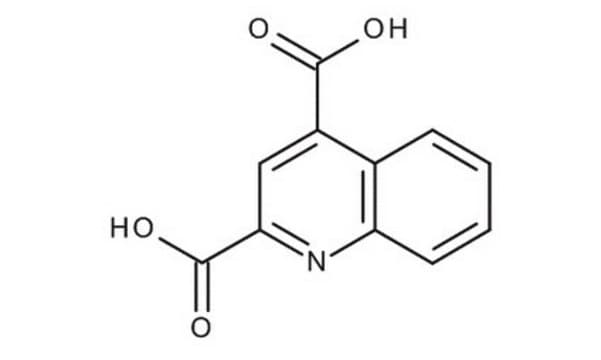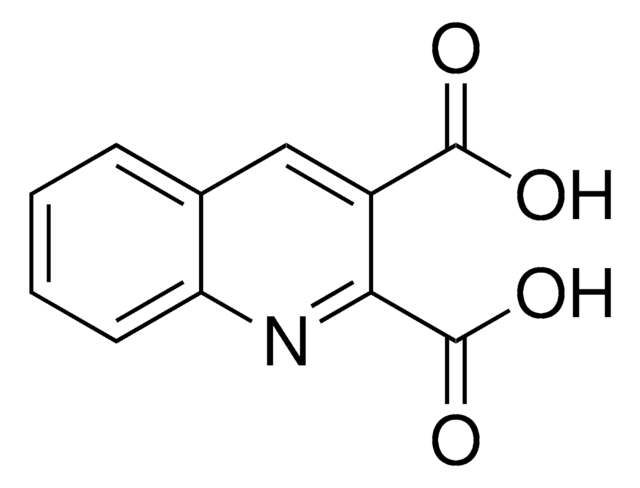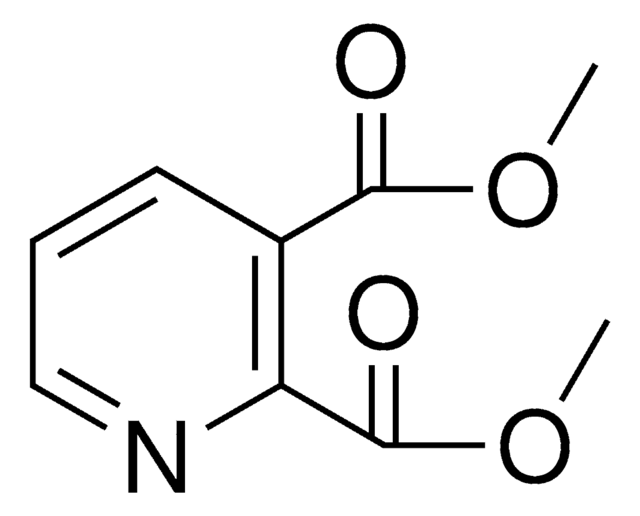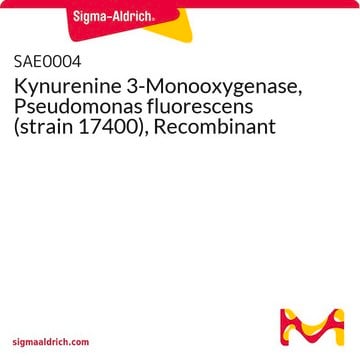P63204
2,3-Pyridinedicarboxylic acid
99%
Synonym(s):
Quinolinic acid
Sign Into View Organizational & Contract Pricing
All Photos(3)
About This Item
Empirical Formula (Hill Notation):
C7H5NO4
CAS Number:
Molecular Weight:
167.12
Beilstein:
137110
EC Number:
MDL number:
UNSPSC Code:
12352100
PubChem Substance ID:
NACRES:
NA.22
Recommended Products
Assay
99%
form
powder
mp
188-190 °C (dec.) (lit.)
SMILES string
OC(=O)c1cccnc1C(O)=O
InChI
1S/C7H5NO4/c9-6(10)4-2-1-3-8-5(4)7(11)12/h1-3H,(H,9,10)(H,11,12)
InChI key
GJAWHXHKYYXBSV-UHFFFAOYSA-N
Gene Information
rat ... Gria1(50592) , Grin2a(24409)
Looking for similar products? Visit Product Comparison Guide
Related Categories
Application
Inhibits glucose synthesis.
Signal Word
Warning
Hazard Statements
Precautionary Statements
Hazard Classifications
Eye Irrit. 2 - STOT SE 3
Target Organs
Respiratory system
Storage Class Code
11 - Combustible Solids
WGK
WGK 3
Personal Protective Equipment
dust mask type N95 (US), Eyeshields, Gloves
Choose from one of the most recent versions:
Already Own This Product?
Find documentation for the products that you have recently purchased in the Document Library.
Customers Also Viewed
Dorit Cohen-Carmon et al.
Molecular neurobiology, 57(3), 1768-1777 (2019-12-14)
Huntington's disease (HD) is a neurodegenerative late-onset genetic disorder caused by CAG expansions in the coding region of the Huntingtin (HTT) gene, resulting in a poly-glutamine (polyQ) expanded HTT protein. Considerable efforts have been devoted for studying HD and other
L Garcia-Salguero et al.
Archives internationales de physiologie, de biochimie et de biophysique, 99(3), 237-242 (1991-06-01)
The in vitro and in vivo effects of several different inhibitors of carbohydrate metabolism have been studied. The in vitro addition of 5-methoxyindole-2-carboxylic acid (MICA), pent-4-enoic acid, and quinolinic acid to the perfusion medium significantly inhibited liver gluconeogenesis in 48-hour-starved
F Moroni et al.
Journal of neurochemistry, 47(6), 1667-1671 (1986-12-01)
Quinolinic acid (QUIN), an excitotoxic tryptophan metabolite, has been identified and measured in human cerebrospinal fluid (CSF) using a mass-fragmentographic method. Furthermore, its content has been evaluated in frontal cortex obtained at autopsy from the cadavers of patients who died
Jessica Huyet et al.
Cell chemical biology, 25(6), 666-676 (2018-03-27)
Phosphoribosyltransferases catalyze the displacement of a PRPP α-1'-pyrophosphate to a nitrogen-containing nucleobase. How they control the balance of substrates/products binding and activities is poorly understood. Here, we investigated the human adenine phosphoribosyltransferase (hAPRT) that produces AMP in the purine salvage
Isabelle M Medana et al.
The Journal of infectious diseases, 185(5), 650-656 (2002-02-28)
A retrospective study of 261 Vietnamese adults with severe malaria was conducted to determine the relationship between cerebrospinal fluid (CSF) levels of metabolites of the kynurenine pathway, the incidence of neurologic complications, and the disease outcome. Three metabolites were measured:
Our team of scientists has experience in all areas of research including Life Science, Material Science, Chemical Synthesis, Chromatography, Analytical and many others.
Contact Technical Service










